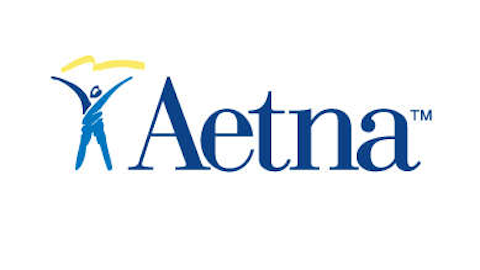Arkansas nearly fell out of the Medicaid expansion debate.
The state has pursued an expansion alternative using federal money for private insurance to cover the newly eligible. The Department of Health and Human Services agreed to the idea, triggering a string of other states trying such workarounds. But then came the tricky matter of securing the approval of state legislators.
Monday’s House vote fell six short of the 75 needed for approval. But another vote was called, and the bill narrowly passed. The Senate followed suit with an approval on Wednesday.
The close call for Medicaid expansion’s favorite example shows how fluid the expansion debate remains — and there’s no end in sight. But the expansion debates also hold some important lessons for understanding the issues surrounding the Patient Protection and Affordable Care Act, commonly known as Obamacare.

There’s a reason why Obamacare discussions often lack specifics — we don’t know them yet. And when we do finally have most of the answers, they will vary depending on the state.
Medicaid expansion is still up for consideration in the majority of states. The Department of Health and Human Services has expressed a willingness to award a limited number of waivers for alternative expansion plans such as Arkansas’. But the plans then have to win approval from state legislators. There’s no deadline for making an expansion decision, which means that states might duck in or out of the program in the future.
And Medicaid isn’t the only Obamacare variation between states. More than two dozen states plan to offer state-run health insurance exchanges, while the rest will send citizens to the federal-run exchange. But several of the participating states won’t have their exchanges ready in time for the October launch, which means more people for the federal exchange.
The federal government wasn’t expecting to carry this much of the burden, and the estimated cost has continued to rise. That carries us to the next Obamacare lesson.
2. Costs are difficult to estimate
States choosing to expand Medicaid will receive full federal funding for the newly eligible during the first three years. The costs for the states who want to pursue waivers, or some other workaround, is impossible to pin down until the actual legislation finalizes.
Things aren’t any clearer with the exchanges.
The HHS was given $1 billion to help fund the federal exchanges when Obamacare first passed. That’s one-fifth of the Congressional Budget Office’s minimum estimate of what the exchanges will cost. Further requests for funding haven’t made it through Congress. President Obama’s budget proposal last week requested $1.5 billion to help carry the extra exchange weight.
The cost of running the exchanges — and whether the government can come up with the money — is a multilayered question of its own. But the exchange uncertainties also make it impossible to estimate how much premiums will increase or decrease with Obamacare.
Vermont became the first state to publish proposed rates for its exchange. But those rates don’t accurately predict changes in most areas due to Vermont’s previously superior insurance requirements.
Beneficiaries aren’t the only ones feeling the strain of confusion. Insurers have quickly diversified to try and anticipate where the market might shift.
3. Uncertain role for insurers
Aetna Inc. (NYSE:AET) shelled out about $5.7 billion last year to acquire Coventry for its firm footing in Medicaid. WellPoint, Inc. (NYSE:WLP) bought Amerigroup for similar reasons. Expansion states will provide government funding along with a wave of new patients. But it’s still unclear how insurers will participate or benefit in the states trying to forge their own Medicaid path.
Insurers have to place bids in states well before they know what the state’s doing regarding the expansion. Take Florida as a recent example.
The Florida Agency for Health Care Administration recently published the Medicaid bids from private insurers hoping to participate in some of the state’s 11 regions. Aetna Inc. (NYSE:AET)’s Coventry bid in every region while WellPoint, Inc. (NYSE:WLP)’s Amerigroup bid in seven.
But Florida’s up in the air regarding expansion. House Republicans suggest state-funded private insurance that would include people up to 100% of the federal poverty level. That’s below the 133% that Obamacare suggested, and the plan faces detractors not wanting to use taxpayer money. An approval would offer insurers a better payout since the state-funded private plans wouldn’t suffer from Medicaid’s cost-saving regulations.
Insurers face similar levels of confusion in the exchanges. There are contracts in place with state-run exchanges, such as Aetna Inc. (NYSE:AET) has with Connecticut. But the launch delays make that a hard path to predict. Then there’s WellPoint, Inc. (NYSE:WLP), which purchased a private health exchange in 2011 with plans to launch alongside the government exchanges.
Foolish final thoughts
The continued uncertainties surrounding Obamacare remain a contentious issue. It’s understandable that some aspects will fall into place over time. But frustrations mount when there are so little concrete data to hold up for inspection. For now, we’re left with the answer that the Medicaid expansion and exchanges are works in progress.
The article 3 Obamacare Lessons From Medicaid Expansion originally appeared on Fool.com and is written by Brandy Betz.
Fool contributor Brandy Betz has no position in any stocks mentioned. The Motley Fool recommends WellPoint. The Motley Fool owns shares of WellPoint.
Copyright © 1995 – 2013 The Motley Fool, LLC. All rights reserved. The Motley Fool has a disclosure policy.

